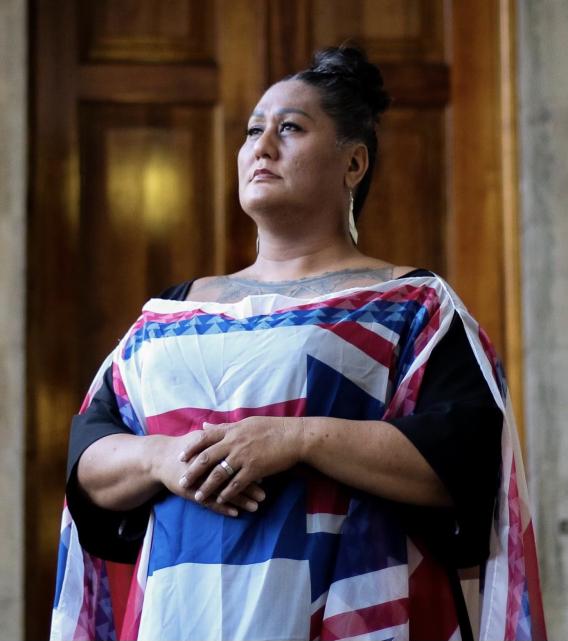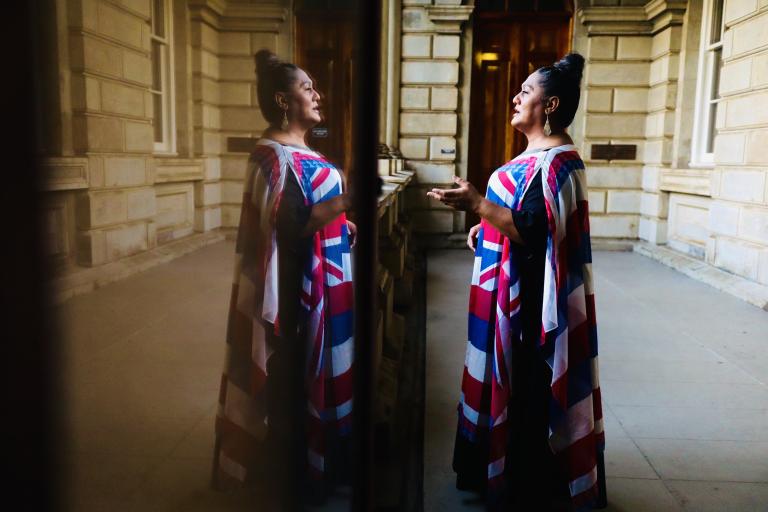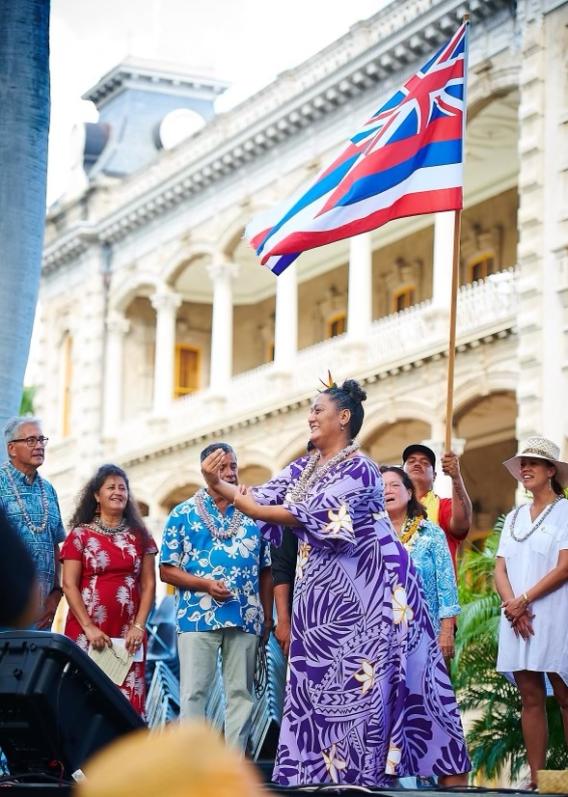
Insights
The Meaning of Māhū
Region(s)
TOPIC(s)
Type
Commentary
Author(s)
Share
-
This article acknowledges the indigenous people of the Pacific. In Native Hawaiian culture, there is a place in the middle.
-
Māhūs are third-gender people with additional spiritual and social roles.
-
Hinaleimoana Kwai Kong Wong-Kalu, also known as Kumu Hina, is a Māhū activist and Kanaka, which means native Hawaiian.
-
She has been trying to preserve and pass on indigenous culture to the younger peoples, with a focus on the young, indigenous, and queer generations.
“Māhū could be someone that looks like you or me. Māhū is not restricted to males. It is also female, although it is not recorded as such in historical documentation or even the oldest dictionaries. So clearly, the definition of Māhū is a little skewed,” said Kumu Hina, who added that in Hawaii Māhū could look more female, or they can just look male in their natural state.

She also said being Māhū wasn't only physical, which was something she wanted people to understand about the culture she comes from.
“People in the Pacific don't look at you for just your physical element or your physical aspects. They look for your mental, emotional, and spiritual place in this life,” she affirmed.
The Challenges
Kumu Hina said she was immune to the challenges that she used to face even though they're still there. The challenges mainly included people’s reactions, including those who would deliberately misgender her.
“I'm not from the generation of ‘they, them or their,’ and that's in the English language. In my language, and in Polynesia, the letters IA form A E I O U in Hawaiian. This is the pronoun for ‘he, her, him, she, or it.’ There is no sex or gender attached to the pronoun. So my people come from this understanding of fluidity, and it's just a reference to that person,” she explained.
Even though she’s developed a thick skin, she recounted how she faced ridicule, prejudice, and discrimination. Kumu Hina added that while some of it did try to derail her, she said the person she is today tolerates none of it.
The Māhū Narrative
“My culture tells me that to be Māhū is nothing wrong. My culture tells me that to be Māhū is to understand that I hold an important space, but it is no greater or no less than Kāne or Wahine. The space that I hold, on multiple levels, depends on me. Depends on what I'm able to handle. It depends on my level of clarity. It depends on my level of self-consciousness and awareness and my desire and willingness to avail myself to the potential,” she said.

Kumu Hina expressed her anxiety around what she termed as the foreign-imposed narrative, which she said was usually the Euro-American-centric LGBTiQ narrative. While she has no problem with the narrative, she said it came with a threat of the erasure of her identity.
“I don't like to always have to try to carry that narrative in front of the narrative that belongs to my people. This is my home. Even some of the people closest to me think that I am being hostile to the ‘mainstream,’ but that's because we're in Hawaii. I'm telling people: this is my mainstream, and people need to understand that. And foreigners introduced me to the conceptualization and articulation of said experiences in life that are second to what the Kanaka perspective is for me. Not necessarily for others, but for me,” she argued.
Advocating for Indigenous Voices
She said her embrace of language, community and history is part of the mission to preserve and amplify indigenous voices.

“I see it in this manner because I'm surrounded by foreigners most of the time, and I take a level of ownership to it so that people really understand that when outsiders always want to emphasize their perspective in my home. It's not that I don't support them to be all that they are and all that they want to be. I'm saying please be mindful that the perspective that I have is not necessarily exclusive. And it does not mean to say that they can't be a part of it. But they have to embrace it and take that on as a way to articulate their life experience,” Kumu Hina said.
She said people who weren’t native were still important to the cultural ecosystem. Still, she emphasized that the contribution should not contaminate but rather preserve her culture - adding that deference should be the approach for “non-natives.”
Message of Hope
“Look no further than our ancestors for the keys to unlocking the knowledge not only of the past but the light to shine and illuminate our future. Many of us as native peoples have known about certain kinds of concepts and ideologies for centuries. It's been foreigners to impose their own fragilities, insecurities, and limitations upon us,” she said.
Kumu Hina said it was easy to mistake her pride for being self-righteous. But she said she felt the responsibility to preserve who she was as Kanaka. “It is up to me to be as candid as I can be in my home and to wear that mantle of responsibility and to let other people feel it because for too long, the other people who have come from elsewhere around the world come here and make us feel like we have no face even without trying. So when I walk into a room, everybody will know I am Kanaka, everybody will know that my language, my history and my culture come first for me,” she said.
Kumu Hina stated she was looking forward to the day when people won't always have to feel the need to proclaim their sex and sexuality. That wish came from Kumu Hina’s culture, where there is no judgment based on sex and sexuality. She said people are rather judged by their contributions to the life we live, whether at the family level or the community level or something greater.

Take Action
When you support our research, you support a growing global movement and celebrate LGBTIQ lives everywhere.
Donate Now